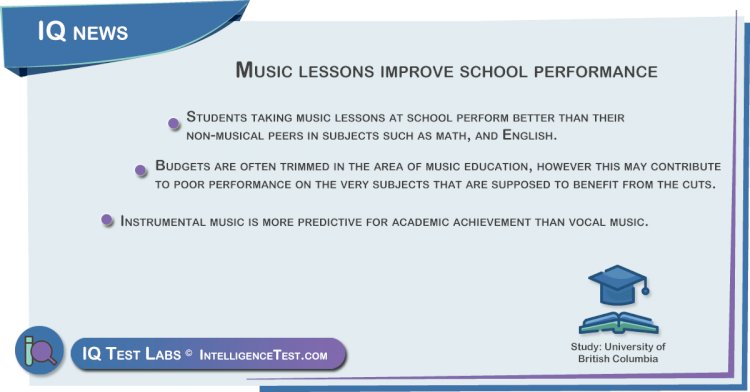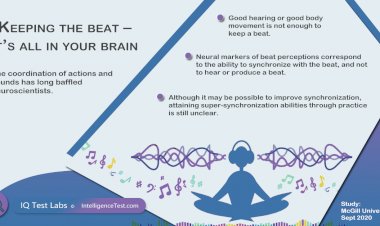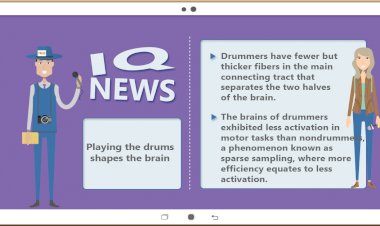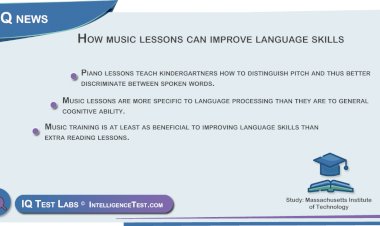Music lessons improve school performance
Students taking music lessons at school perform better than their non-musical peers in subjects such as math, and English.

Main titles
- Budgets are often trimmed in the area of music education, however this may contribute to poor performance on the very subjects that are supposed to benefit from the cuts.
“Our research proved this belief wrong and found the more the students engage with music, the better they do in those subjects. The students who learned to play a musical instrument in elementary and continued playing in high school not only score significantly higher, but were about one academic year ahead of their non-music peers with regard to their English, mathematics and science skills, as measured by their exam grades, regardless of their socioeconomic background, ethnicity, prior learning in mathematics and English, and gender.” - Peter Gouzouasis; UBC education professor.
- Instrumental music is more predictive for academic achievement than vocal music.
"Learning to play a musical instrument and playing in an ensemble is very demanding. A student has to learn to read music notation, develop eye-hand-mind coordination, develop keen listening skills, develop team skills for playing in an ensemble and develop discipline to practice. All those learning experiences, and more, play a role in enhancing the learner’s cognitive capacities, executive functions, motivation to learn in school, and self-efficacy.” - Martin Guhn; UBC assistant professor.
Source: news.ubc.ca


















